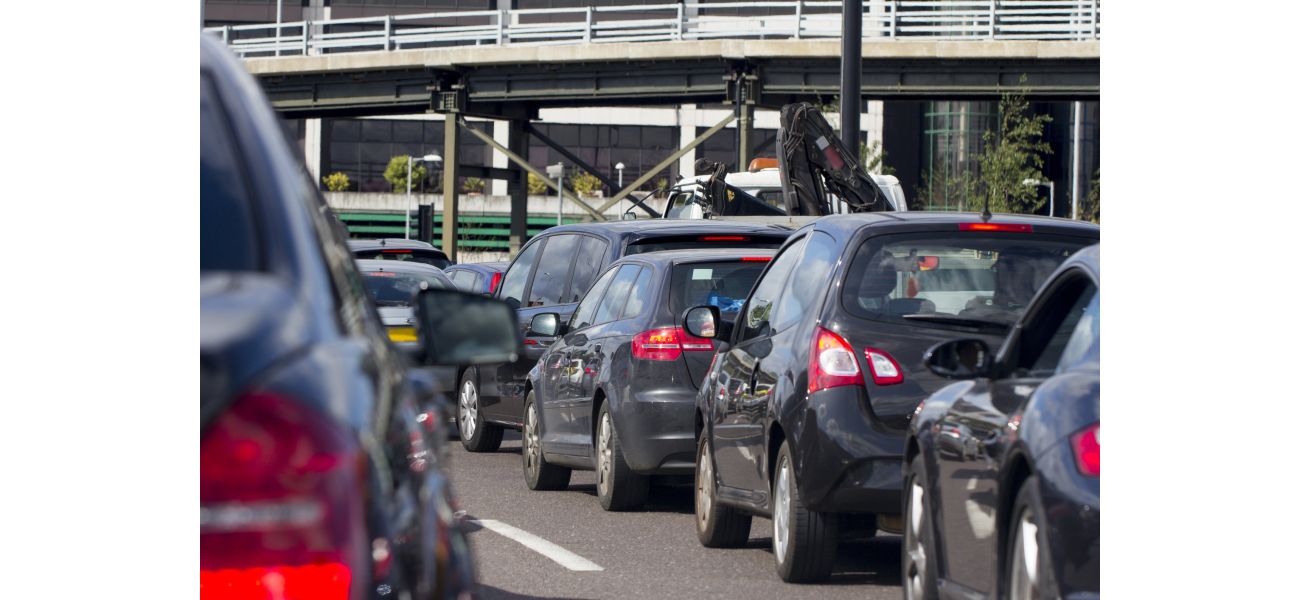UK drivers should be aware of a potential increase in vehicle tax for older cars in 2025.
In 2025, the new tax changes will have a big impact on diesel car owners.
December 2nd 2024.

Starting next year, the government plans to implement a new policy that will require cars emitting higher levels of pollution to pay a higher tax. This means that owners of older classic cars may be hit with significantly higher fees, causing some to feel the pinch in their wallets. Known as Vehicle Excise Duty, this annual charge applies to anyone who drives or keeps their car on public roads. However, come spring, almost all petrol and diesel car owners will see an increase in their fees.
For those who buy brand-new cars, the first-year VED rates will double, resulting in higher costs for those who choose to drive polluting models. But it's not just new cars that will be affected. Cars registered between 1984 and 2001, which fall under a different tax system, will also face steep increases. Experts predict that drivers in the lower power bracket will have to pay £220 in 2025/26, which is a £10 increase from the current £210 per year.
The new tax overhaul is part of a larger plan being rolled out by the Driver and Vehicle Licensing Agency in April. As a result, new car owners can expect to pay an average of £418 more in road taxes, according to GoCompare.com. However, it's diesel car owners who will feel the biggest sting, with an average increase of £1,113, double the amount facing petrol drivers. This means that owning a diesel car will become significantly more expensive.
Unfortunately, even zero-emission vehicles will no longer be exempt from tax in the first year. This includes electric cars, which will now be subject to VED fees. Additionally, those who purchase hybrid cars after April will have to pay an extra £135, with an average increase of £327, according to GoCompare. These changes are based on the model of the car, so the amount may vary.
The amount of tax a car owner pays is largely determined by how much CO2 their vehicle emits. This means that cars with higher emissions will be placed in higher VED bands, resulting in higher fees. This move is part of a larger trend towards reducing pollution and promoting environmentally friendly vehicles. In fact, the government plans to continue increasing VED rates in line with inflation, similar to what was done last year.
According to HMRC, this new measure will uprate the Vehicle Excise Duty rates for cars, vans, motorcycles, and motorcycle trade licenses by the Retail Price Index. It will also include zero-emission vehicles in VED fees starting April 2025. This is a standard adjustment that will take effect from April 1st, 2025.
For those who buy brand-new cars, the first-year VED rates will double, resulting in higher costs for those who choose to drive polluting models. But it's not just new cars that will be affected. Cars registered between 1984 and 2001, which fall under a different tax system, will also face steep increases. Experts predict that drivers in the lower power bracket will have to pay £220 in 2025/26, which is a £10 increase from the current £210 per year.
The new tax overhaul is part of a larger plan being rolled out by the Driver and Vehicle Licensing Agency in April. As a result, new car owners can expect to pay an average of £418 more in road taxes, according to GoCompare.com. However, it's diesel car owners who will feel the biggest sting, with an average increase of £1,113, double the amount facing petrol drivers. This means that owning a diesel car will become significantly more expensive.
Unfortunately, even zero-emission vehicles will no longer be exempt from tax in the first year. This includes electric cars, which will now be subject to VED fees. Additionally, those who purchase hybrid cars after April will have to pay an extra £135, with an average increase of £327, according to GoCompare. These changes are based on the model of the car, so the amount may vary.
The amount of tax a car owner pays is largely determined by how much CO2 their vehicle emits. This means that cars with higher emissions will be placed in higher VED bands, resulting in higher fees. This move is part of a larger trend towards reducing pollution and promoting environmentally friendly vehicles. In fact, the government plans to continue increasing VED rates in line with inflation, similar to what was done last year.
According to HMRC, this new measure will uprate the Vehicle Excise Duty rates for cars, vans, motorcycles, and motorcycle trade licenses by the Retail Price Index. It will also include zero-emission vehicles in VED fees starting April 2025. This is a standard adjustment that will take effect from April 1st, 2025.
[This article has been trending online recently and has been generated with AI. Your feed is customized.]
[Generative AI is experimental.]
0
0
Submit Comment





